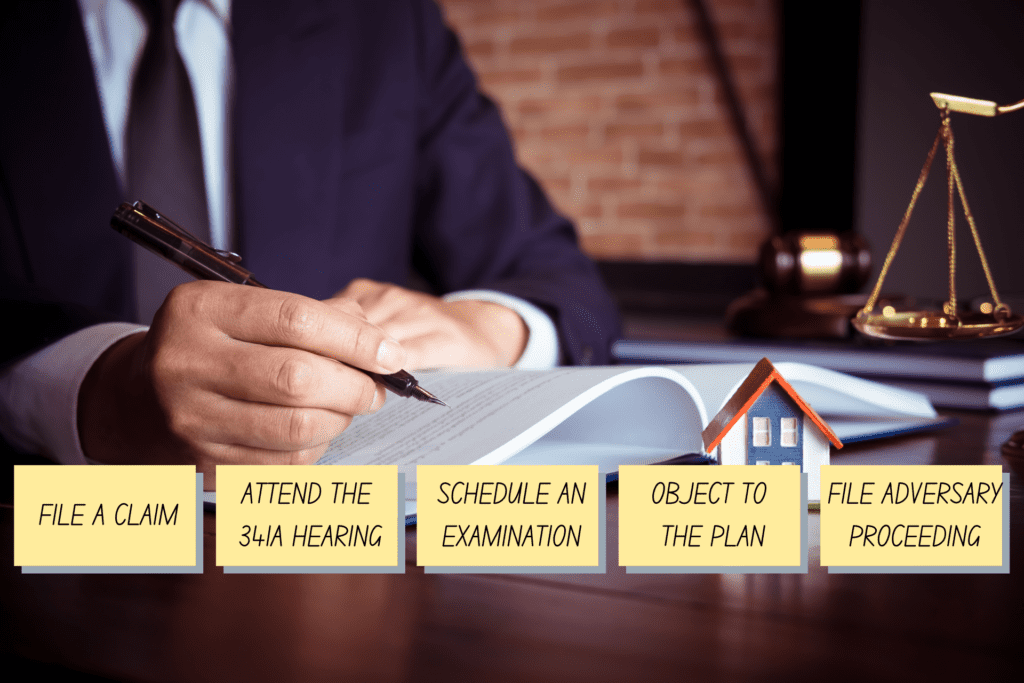
What if you are trying to collect a debt owed to your company or your client and the person or company you are trying to collect from suddenly files a bankruptcy? Often, creditors will simply close their files on such cases. However, there are some actions that might be worthwhile to take in certain cases.
- FILE A CLAIM. If there is a possibility of creditors receiving any payment through the bankruptcy, for example in a Chapter 11 or 13 payment plan, or in a Chapter 7 if the debtor has assets, then the creditor needs to file a Claim (a statement of the amount due) with the Bankruptcy Court in order to receive any payment.
- ATTEND THE 341A HEARING. At the “Meeting of Creditors” also known as the 341A Hearing, creditors are allowed to appear and ask questions of the debtor. This might be worthwhile if you have reason to believe that the debtor is understating income or hiding assets.
- SCHEDULE AN EXAMINATION. If the creditor wishes to ask more questions than will be allowed in the Meeting of Creditors (more than a few minutes’ worth), the creditor can request that the court schedule an examination, which will be similar to a deposition in a civil case.
- OBJECT TO THE PLAN. In a Chapter 11 or a Chapter 13, where the Debtor submits a payment plan, a creditor can object if the plan does not treat creditors fairly.
- FILE ADVERSARY PROCEEDING. If a debt was incurred through intentional wrong-doing, such as fraud, embezzlement, assault etc., or if debtor hid assets or made fraudulent transfers to avoid paying creditors, a creditor can file an adversary proceeding (a lawsuit within the bankruptcy court) requesting that debtor be denied a discharge.
These are some of the remedies that creditors may be able to use in bankruptcy cases. For a free consultation regarding your rights and options as a creditor, call +1 800 455 1592 // (213) 509 1515.
